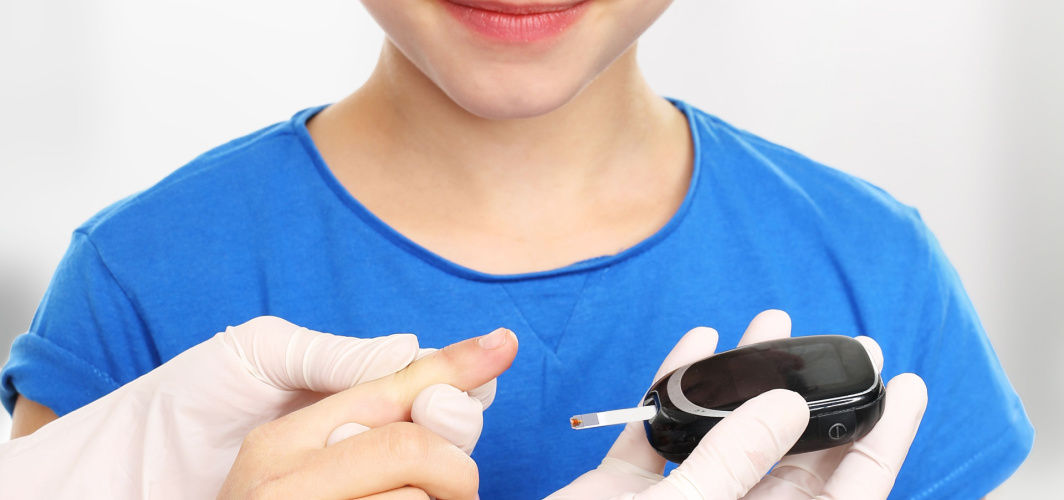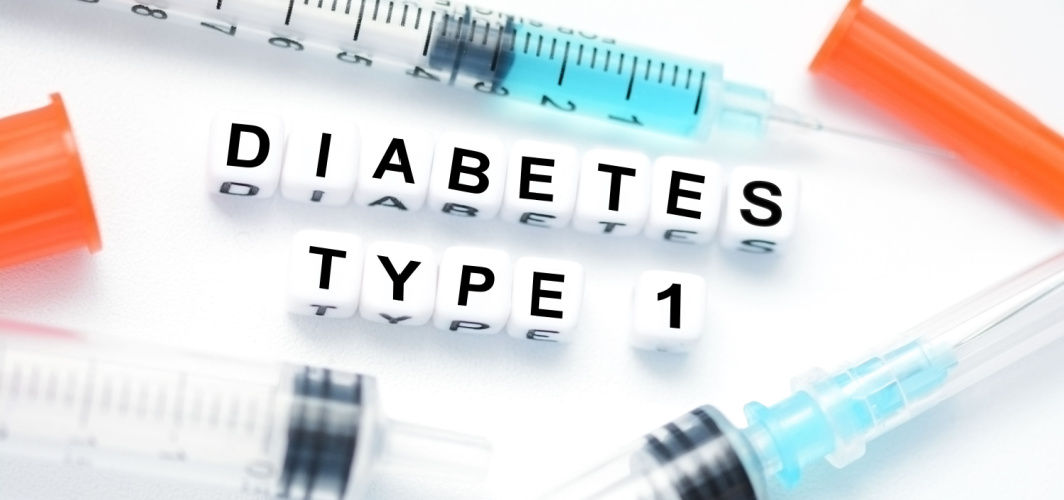Diabetes Management
Type 1 Diabetes In Children: Is Insulin Safe For Kids?
4 min read
By Apollo 24|7, Published on - 12 June 2023, Updated on - 12 December 2023
Share this article
0
0 like

Type 1 diabetes is a metabolic condition in which a person or a child's body is unable to produce insulin. Since insulin is necessary for the metabolism of blood glucose, synthetic insulin is provided via injections or an insulin pump. Notably, most cases of type 1 diabetes are diagnosed in children or adolescents, hence this type of diabetes is also called juvenile diabetes or insulin-dependent diabetes.
The diagnosis of type 1 diabetes in kids can be overwhelming for the parent as well as the child. However, knowing about the condition, its symptoms and the best ways to manage it can put them at ease. Let's understand more about it in this blog.
Symptoms of Diabetes in Kids
Common signs and symptoms of juvenile diabetes (type 1 diabetes) include:
- Excessive thirst
- Frequent urination
- Increased hunger, even after eating
- Unexplained weight loss
- Blurred vision
- Slow healing of cuts or wounds
- Recurring infections, such as yeast infections
If you notice these symptoms in a child, it's important to seek medical attention for proper diagnosis and treatment.
Insulin Therapy for Type 1 Diabetes in Children
Treatment for type 1 diabetes in children includes:
- Taking insulin as advised by the doctor
- Regularly monitoring blood sugar levels
- Eating a healthy and balanced diet
- Exercising regularly
Insulin is essential for diabetic patients who suffer from type 1 diabetes and is entirely safe. Existing studies indicate that insulin pump therapy is safe for children.
As parents, you will work closely with your child's healthcare and diabetes management team to keep your child's blood glucose levels within normal limits.
Also Read: Insulin therapy: All you need to know
Types of Insulin For Children
A child with type 1 diabetes would require lifelong management with one or more types of insulin. Here's all about some common types of insulin:
1. Rapid-Acting Insulin
This insulin starts working within 15 minutes of administration and reaches its peak in 60 minutes. Its effect lasts for around 4 hours and is often given 15 to 20 minutes before a meal.
2. Short-Acting or Regular Insulin
This insulin begins to act around 30 minutes after injection and reaches peak effect in around 90 to 120 minutes. The effect of regular insulin lasts around 4 to 6 hours.
3. Intermediate-Acting Insulin
This insulin type works in about 1 to 3 hours after administration and reaches its peak in 6 to 8 hours. The effect of intermediate-acting insulin lasts 12- 24 hours.
4. Long-Acting and Ultra-Long-Acting Insulin
As the name suggests, these insulin types provide coverage for 14 to 40 hours.
Insulin Administration
A few delivery options that may be used for administering insulin to your child include:
1. The traditional needle and syringe
For this method, you would require an insulin vial and an ultrafine disposable syringe. The most common places for insulin injection are the belly (abdomen), the back of the upper arms, the upper part of the buttocks and the outer portion of the thighs.
2. Insulin pen with a fine needle
This device would look similar to that of a glucose monitoring kit as it has a pen with pre-loaded insulin. It should be used on a single person, multiple times.
3. Insulin pump
A small device known as an insulin pump is worn on the outside of the body and can be programmed to deliver specific amounts of the drug throughout the day.
4. A closed-loop system
It is a device that is implanted in the body and is linked to a continuous glucose monitor system and an insulin pump. The monitor checks your child's blood sugar levels throughout the day and automatically delivers the exact amount of insulin when the monitor indicates so.
Keep a constant check on your blood sugar levels with, Apollo’s HbA1c Test
Conclusion
To sum up, insulin is safe and vital for the well-being of your children with juvenile or type 1 diabetes. Insulin administration allows them to effectively manage their blood sugar levels and prevent complications as they grow older. While there may be concerns about insulin use, advancements in technology and a better understanding of dosing have made it safer than ever before. With proper medical supervision and support, parents can confidently administer insulin to their children and help them live their lives to the fullest. If you have more concerns,
You can also try the Apollo 24|7 Diabetes Self-Management Tool to log your sugar values, track patterns, know all about food nutrition and more.
Medically reviewed by Dr Sonia Bhatt.
Diabetes Management
Consult Top Diabetologists
View AllLeave Comment
Recommended for you
.jpg?tr=q-80)
Diabetes Management
Yoga in Diabetes: Your Partner in Care for a Stronger Body and Mind
Yoga is considered to have a holistic effect on one’s mind & body and can provide many benefits. It offers multiple benefits for individuals affected with diabetes. Regular practice can help manage blood glucose levels, maintain a healthy weight, and improve blood circulation and insulin sensitivity. Additionally, yoga's focus on mental awareness can help individuals better manage their stress levels, which is crucial for maintaining healthy blood sugar control. Variance in stress impacts blood sugar control. Overall, yoga seems to be a valuable tool for managing diabetes holistically and effectively.

Diabetes Management
Is it Safe for Diabetics to Donate Blood?
Yes, it is generally safe for individuals with diabetes to donate blood as long as their condition is well-managed and they meet the required health criteria. People with both type 1 and type 2 diabetes may be eligible, depending on factors such as overall health and medication use. Diabetic donors need to monitor their blood sugar levels, stay hydrated, and have snacks on hand to stabilise blood sugar. Effective communication with the donation centre staff and making them well aware of your condition is crucial for a safe donation process.

Diabetes Management
Type 1 Diabetes: Symptoms, Causes, Diagnosis, and Treatment
Type 1 diabetes, an autoimmune condition, halts insulin production, causing high blood sugar. Symptoms: excessive thirst, frequent urination, weight loss. Genetics and triggers play a role. Diagnosis: glucose tests, antibody checks. Management: insulin therapy, glucose monitoring, carb counting. Complications: heart disease, kidney problems, nerve damage. Early detection and management are vital.
Subscribe
Sign up for our free Health Library Daily Newsletter
Get doctor-approved health tips, news, and more.
Visual Stories

8 Fruits That are Incredibly Healthy for Diabetes
Tap to continue exploring
Recommended for you
.jpg?tr=q-80)
Diabetes Management
Yoga in Diabetes: Your Partner in Care for a Stronger Body and Mind
Yoga is considered to have a holistic effect on one’s mind & body and can provide many benefits. It offers multiple benefits for individuals affected with diabetes. Regular practice can help manage blood glucose levels, maintain a healthy weight, and improve blood circulation and insulin sensitivity. Additionally, yoga's focus on mental awareness can help individuals better manage their stress levels, which is crucial for maintaining healthy blood sugar control. Variance in stress impacts blood sugar control. Overall, yoga seems to be a valuable tool for managing diabetes holistically and effectively.

Diabetes Management
Is it Safe for Diabetics to Donate Blood?
Yes, it is generally safe for individuals with diabetes to donate blood as long as their condition is well-managed and they meet the required health criteria. People with both type 1 and type 2 diabetes may be eligible, depending on factors such as overall health and medication use. Diabetic donors need to monitor their blood sugar levels, stay hydrated, and have snacks on hand to stabilise blood sugar. Effective communication with the donation centre staff and making them well aware of your condition is crucial for a safe donation process.

Diabetes Management
Type 1 Diabetes: Symptoms, Causes, Diagnosis, and Treatment
Type 1 diabetes, an autoimmune condition, halts insulin production, causing high blood sugar. Symptoms: excessive thirst, frequent urination, weight loss. Genetics and triggers play a role. Diagnosis: glucose tests, antibody checks. Management: insulin therapy, glucose monitoring, carb counting. Complications: heart disease, kidney problems, nerve damage. Early detection and management are vital.


